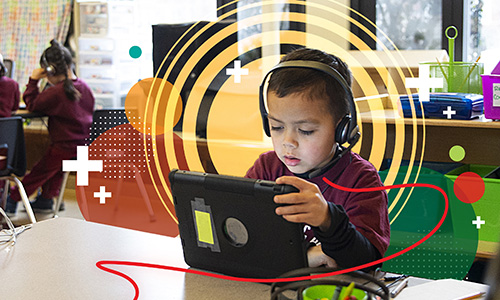Research brief
MAP Reading Fluency with Coach Evidence Base
July 2024
By: Amy Endo

Description
This document provides an overview of the research underlying MAP Reading Fluency with Coach’s AI-powered intelligent reading tutor and the research on key elements of early literacy instruction. It describes the components of the MAP Reading Fluency with Coach pedagogy and the research base supporting each component.
See MoreRelated Topics


Moving from data to making a difference
The problems faced within education resemble the problems in many social settings in that they lack clear definitions, have many potential causes, lack simple solutions, and defy straightforward measurement. In this article, Andrew Hegedus shares a view on the types of problems faced in education and outlines key characteristics of a process that begins with collecting data and ends with evaluating progress.
By: Andrew Hegedus
Topics: Empowering educators, High school, High-growth schools & practices


Using test scores for teacher evaluation: Why caution is necessary
This article offers insight and guidance on issues to think about before tests are used as an evaluation tool and to help ensure better choices are made about the role test scores play in a teacher’s evaluation.
Topics: Empowering educators, Student growth & accountability policies


Developing more meaningful definitions of college readiness
Complementing traditional quantitative measures with more qualitative tools can help determine college and career readiness.
By: John Cronin, Michael Dahlin


The utility of adaptive testing in addressing the problem of unmotivated examinees
This integrative review examines the motivational benefits of computerized adaptive tests (CATs), and demonstrates that they can have important advantages over conventional tests in both identifying instances when examinees are exhibiting low effort, and effectively addressing the validity threat posed by unmotivated examinees.
By: Steven Wise
Topics: Measurement & scaling, Innovations in reporting & assessment, School & test engagement


The potential of adaptive assessment
In this article, the authors explain how CAT provides a more precise, accurate picture of the achievement levels of both low-achieving and high-achieving students by adjusting questions as the testing goes along. The immediate, informative test results enable teachers to differentiate instruction to meet individual students’ current academic needs.
By: Edward Freeman
Topics: Innovations in reporting & assessment, Measurement & scaling, Student growth & accountability policies


Making teacher goal setting more powerful
Most of us believe that when individuals have goals, their performance improves, and this belief is being put to the test in schools today. In an effort to create alignment between district and school improvement efforts, teachers are more likely than ever to have formal performance goals.
By: Andrew Hegedus
Topics: Empowering educators, High-growth schools & practices


Response time as an indicator of test taker speed: assumptions meet reality
The growing presence of computer-based testing has brought with it the capability to routinely capture the time that test takers spend on individual test items. This, in turn, has led to an increased interest in potential applications of response time in measuring intellectual ability and achievement. Goldhammer (this issue) provides a very useful overview of much of the research in this area, and he provides a thoughtful analysis of the speed-ability trade-off and its impact on measurement.
By: Steven Wise
Topics: Measurement & scaling, Innovations in reporting & assessment, School & test engagement


